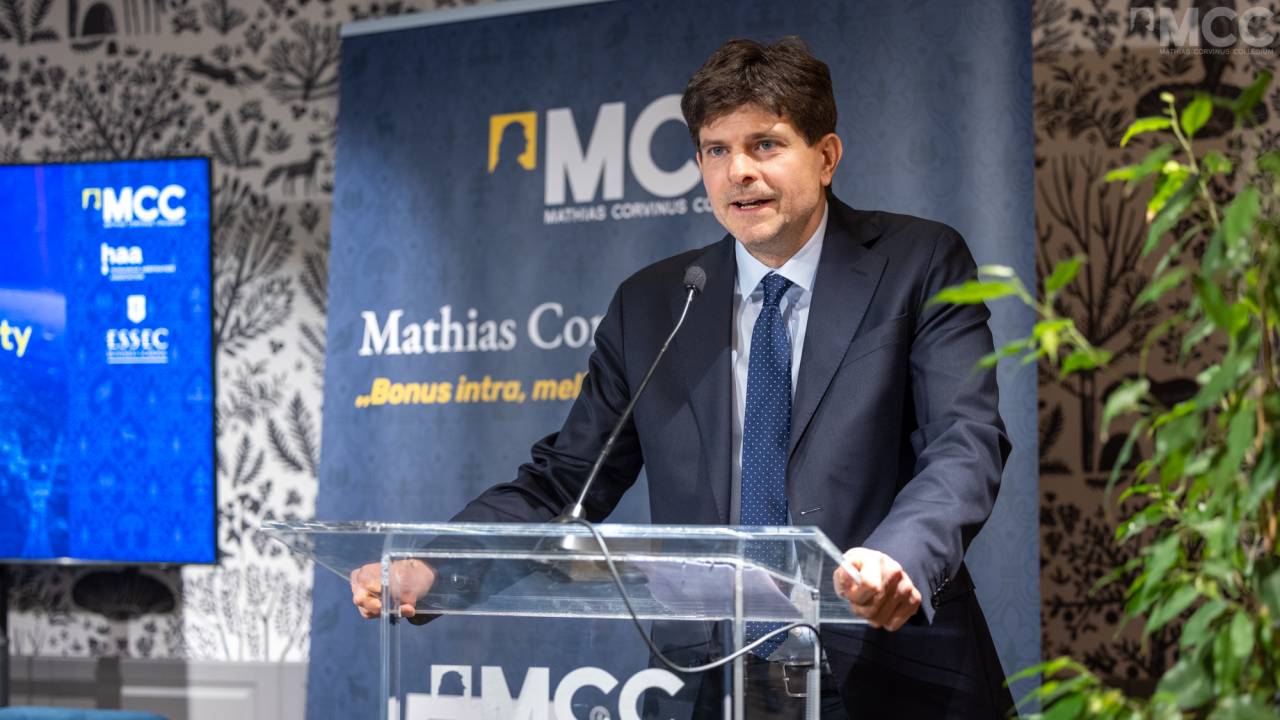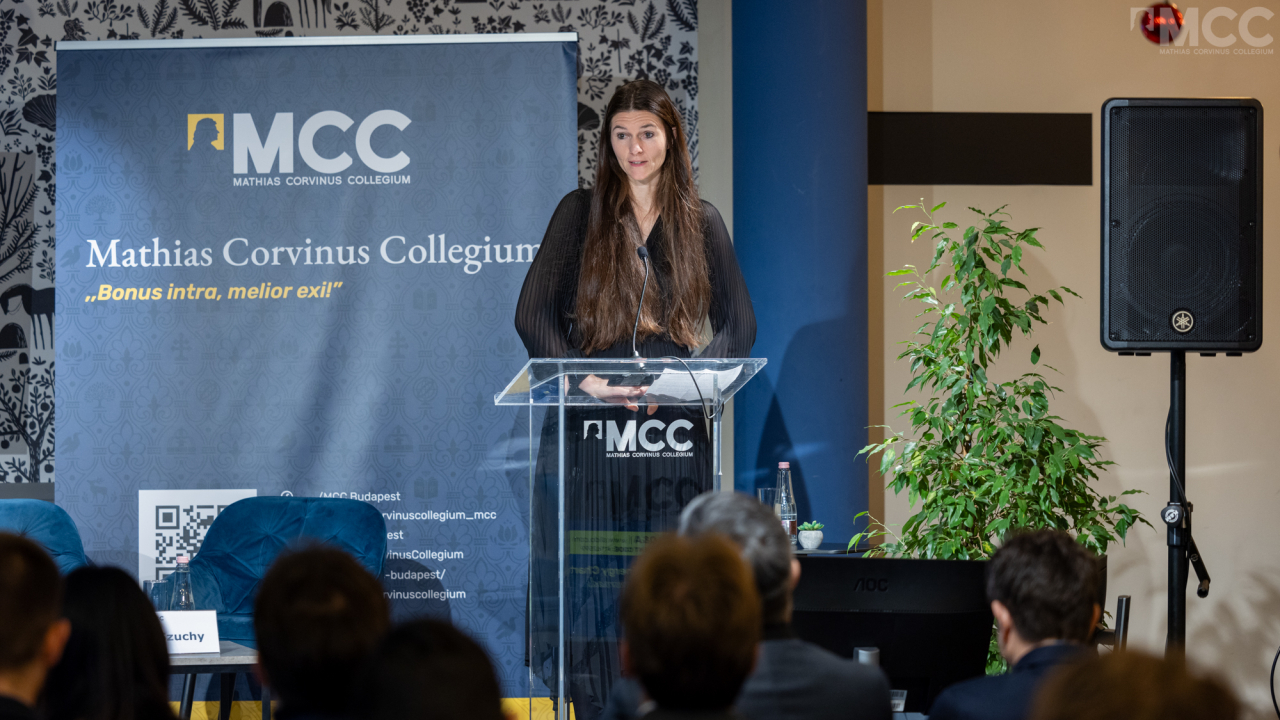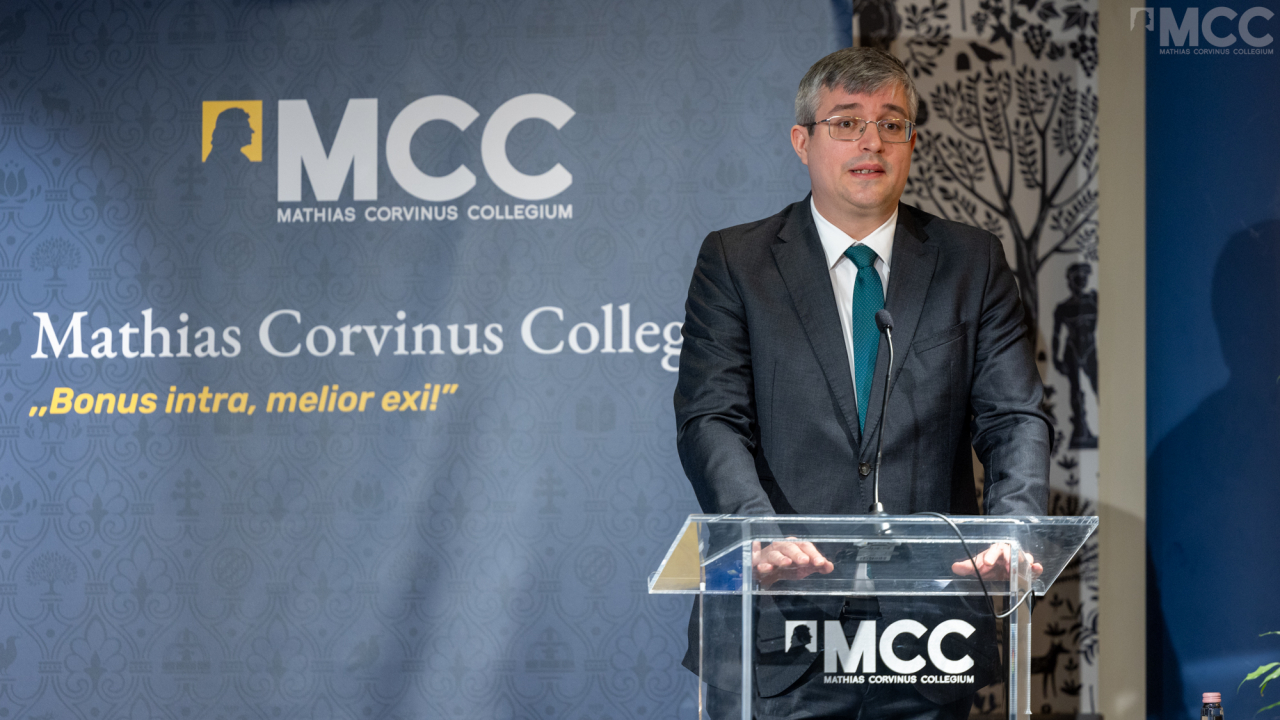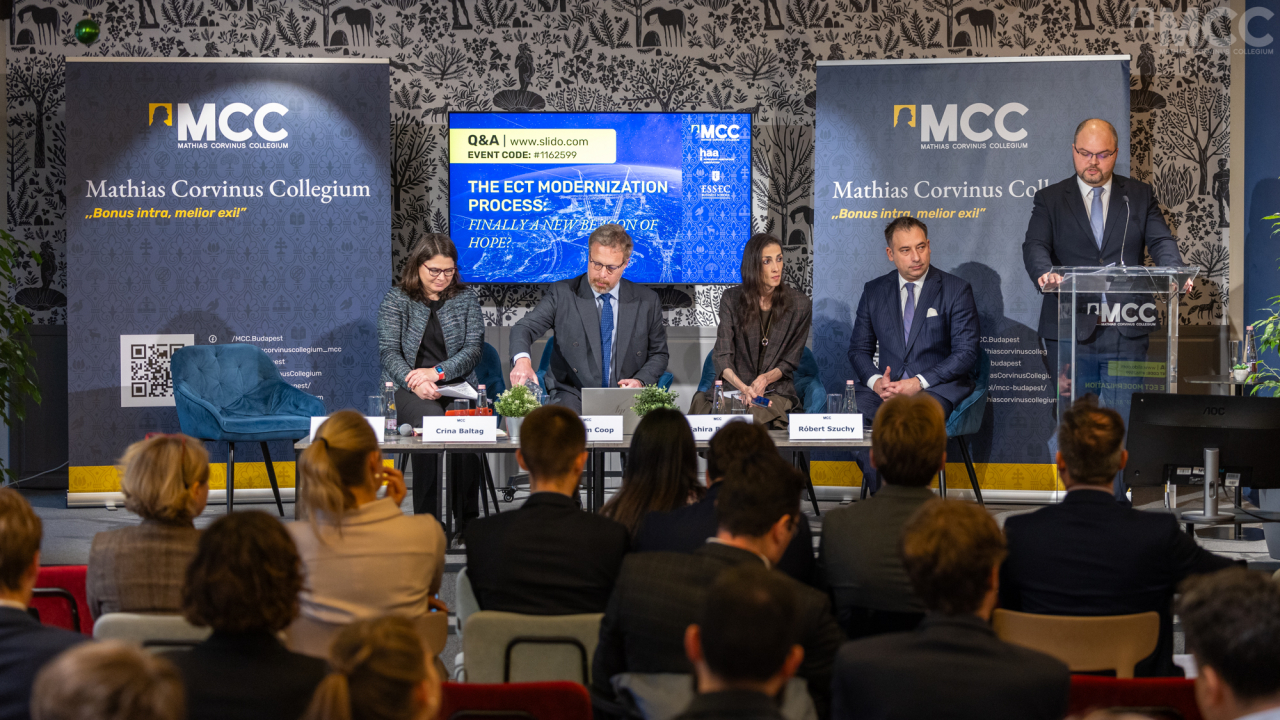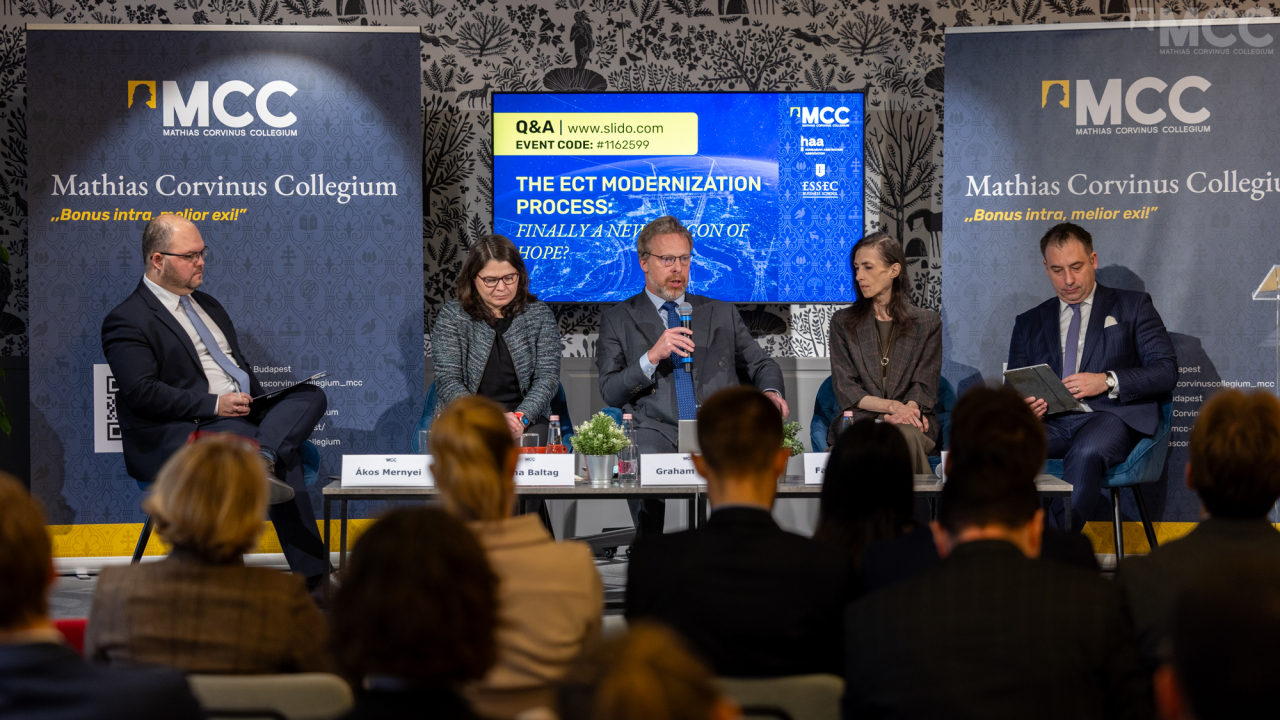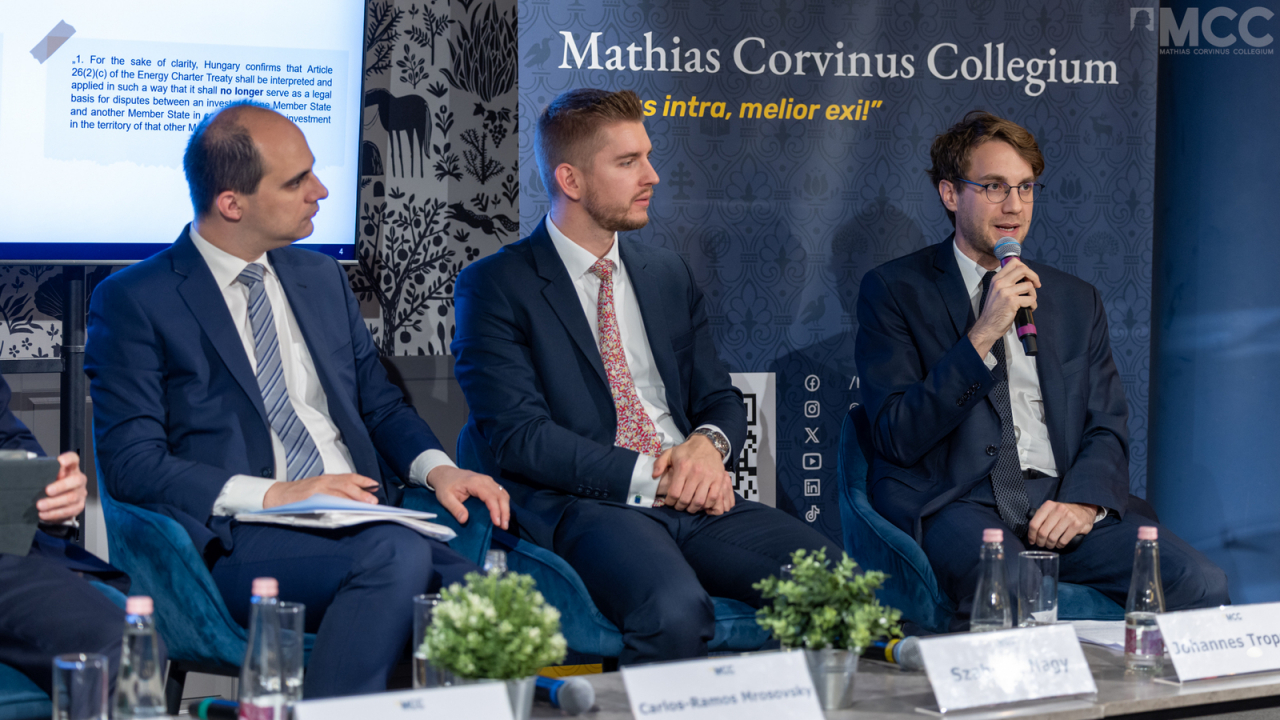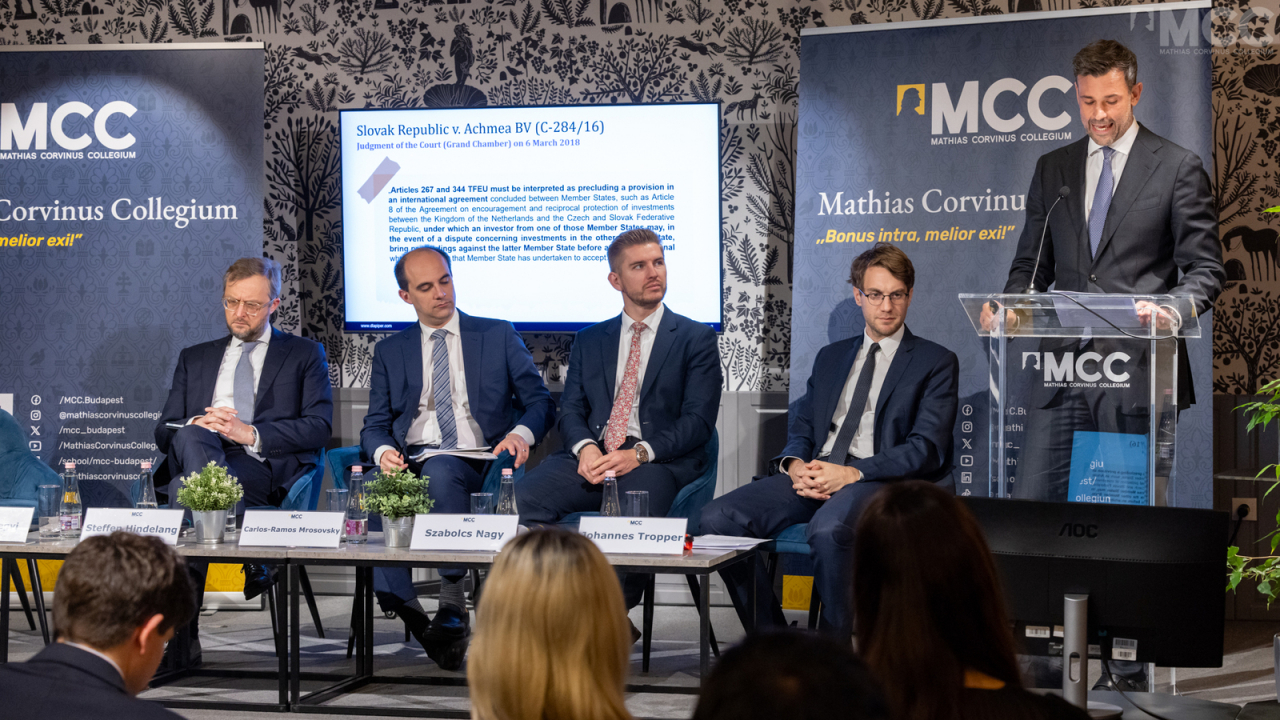Reading time: 2 minutes
Last Thursday, MCC hosted the Energy Charter Treaty (ECT) Conference, bringing together global experts to discuss the treaty’s modernization and its critical role in addressing contemporary energy challenges. The event began with opening remarks from Lénárd Sándor and Veronika Korom, setting the stage for dynamic and timely discussions.
Lénárd Sándor, Head of the School of Law at MCC welcomed participants, emphasizing the significance of the conference in uniting diverse perspectives to tackle pressing issues like energy security and geopolitics. He highlighted the pivotal moment the treaty regime has reached and the need to explore solutions for its future. Veronika Korom, Assistant Professor for International Business Law and Arbitration at ESSEC Business School shared insights from her career in international arbitration, focusing on the challenges surrounding the ECT. She highlighted Hungary’s leadership in these discussions, being the first country to take a strong stance on the treaty’s future.
Keynote speeches were delivered by Atsuko Hirose, Acting Secretary General of the Energy Charter Secretariat, and Csaba Marosvári, Deputy State Secretary for Energy Security. Atsuko Hirose underscored the treaty’s role as a cornerstone for global energy cooperation and highlighted its modernization efforts, which include integrating new energy materials like hydrogen and carbon capture. She expressed optimism about the upcoming ECT conference in Brussels, noting that adopting modernization measures would be a significant milestone. Csaba Marosvári highlighted Hungary’s strong support for modernizing the Energy Charter Treaty (ECT) during its 30th anniversary, emphasizing the country's commitment to balancing stability and adaptability. He underscored the importance of incorporating renewable energy and addressing climate change within the treaty’s framework while maintaining a stable legal environment that fosters investment and connectivity.
The conference featured three engaging panel discussions: the first focused on the challenges and prospects of modernizing the Energy Charter Treaty (ECT), the second debated its role in the energy transition, and the third addressed the feasibility of disconnecting the treaty’s Intra-EU application without formal modernization.
In closing, Lénárd Sándor reflected on the importance of providing platforms for meaningful dialogue on crucial global issues. He emphasized that the ECT serves as a vital bridge for energy connectivity and competitiveness and that a modernized treaty could provide the stability needed for investments and long-term growth while addressing contemporary energy and climate challenges.
